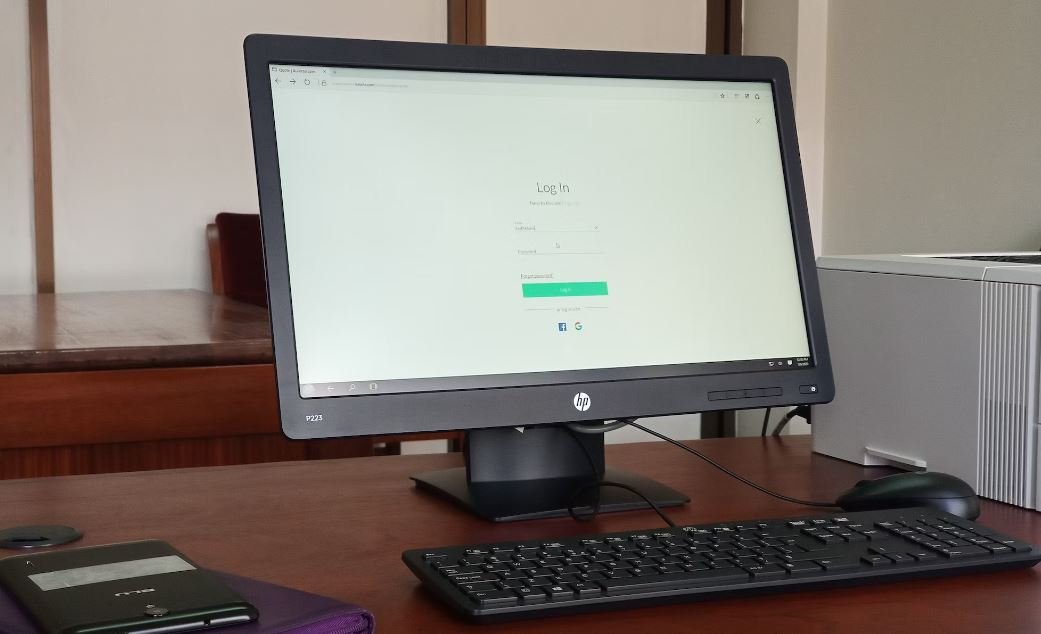Podcast Creator
Are you interested in starting your own podcast? Podcasting has become increasingly popular over the years, allowing individuals to share their ideas and stories with a wide audience. Whether you have a passion for a specific topic, want to establish yourself as an expert, or simply love the art of storytelling, creating a podcast can be a rewarding venture.
Key Takeaways:
- Podcasting enables individuals to share their ideas and stories with a large audience.
- Starting a podcast can help you establish yourself as an expert in your respective field.
- Podcasting provides a platform for creative expression and storytelling.
Understanding Podcasting
Podcasting involves the creation and distribution of digital audio files, typically in an episodic series, that can be downloaded and listened to on various devices. These files are often published on popular podcast platforms like Apple Podcasts, Spotify, and Google Podcasts. Podcast episodes can vary in length, format, and content, allowing creators to tailor their shows to their audience’s preferences.
*Podcasting allows creators to connect with their audience on a personal level by engaging them through audio content.*
Getting Started
To create your own podcast, you’ll need a few essential tools and steps:
- Decide on a niche or topic for your podcast.
- Invest in a good quality microphone for clear audio recording.
- Select a reliable recording and editing software for producing your episodes.
- Create a compelling intro and outro for brand consistency.
- Outline your episode content beforehand to stay organized.
- Promote your podcast through social media and other marketing channels.
*Before you start, make sure to do some research on successful podcasts within your niche for inspiration.*
Monetizing Your Podcast
Once you have established your podcast and gained a loyal following, you may be interested in monetizing your show. Here are a few common methods for podcast monetization:
- Sponsorships: Collaborate with companies or brands that align with your podcast’s content and values.
- Advertisements: Incorporate paid advertisements or promotions into your episodes.
- Patreon: Offer bonus content or early access to episodes to your Patreon supporters in exchange for their financial contributions.
*Monetizing your podcast requires dedication, consistency, and a strong understanding of your target audience.*
Podcast Statistics
| Statistic | Value |
|---|---|
| Number of active podcasts | 1.75 million |
| Podcast listeners in the US | over 75 million |
| Percentage of US population that listens to podcasts weekly | 37.1% |
Tips for Success
- Consistency is key; release episodes on a regular schedule.
- Engage with your audience by encouraging listener feedback and questions.
- Create visually appealing cover art for your podcast.
- Collaborate with other podcasters or guest speakers to expand your reach.
*Remember, success in podcasting takes time and effort. Enjoy the journey and always strive to improve your content.*
Podcasting as a Creative Outlet
One of the most beautiful aspects of podcasting is its potential for creative expression. Through storytelling, interviews, and discussions, podcasters can captivate listeners and share their unique perspectives. It’s an opportunity to showcase your passion and connect with like-minded individuals.
*Podcasting allows you to explore your creative side while building a community around your ideas.*
Start Your Podcast Today!
Ready to launch your own podcast? With the right tools, strategies, and dedication, you can create an engaging show that resonates with your audience. Embrace the power of podcasting and join the ever-growing community of podcast creators!

Common Misconceptions
Paragraph 1:
One common misconception about podcast creators is that they are only experts in their particular field. While many podcast creators do possess a deep knowledge and expertise in a specific topic, it is not always the case.
- Podcast creators often rely on extensive research to provide accurate information.
- Some podcast creators invite guest experts to provide insights and different perspectives.
- Many podcast creators are skilled interviewers who can draw out valuable information from their guests.
Paragraph 2:
Another common misconception is that podcast creators simply sit in front of a microphone and talk without any editing or post-production work. While some podcasts do follow a more casual and conversational format, most podcast creators dedicate time and effort to editing and enhancing their episodes.
- Podcast creators spend hours editing episodes to remove mistakes, long pauses, or irrelevant content.
- They may add background music, sound effects, or other production elements to enhance the listening experience.
- Podcast creators often invest in quality microphones, audio software, and equipment to improve sound quality.
Paragraph 3:
One misconception is that podcast creators only focus on creating content and don’t need to worry about marketing or promotion. However, successful podcast creators understand the importance of marketing their podcast to grow their audience.
- Podcast creators often employ social media strategies to promote their episodes and engage with their listeners.
- They may collaborate with other podcast creators or industry influencers to expand their reach.
- Podcast creators may also use email marketing, website optimization, and other techniques to attract new listeners.
Paragraph 4:
Many people mistakenly believe that podcast creators make a significant amount of money solely from their podcast. While there are some highly successful podcasters who generate revenue through sponsorships and advertising, this is not the case for all podcast creators.
- Podcast creators often require support from their audience through crowdfunding platforms or donations.
- They may offer premium content or merchandise to generate additional revenue.
- Some podcast creators utilize their podcast as a platform to promote their other products or services.
Paragraph 5:
Lastly, one misconception about podcast creators is that their podcasts are meant for entertainment purposes only. While many podcasts are indeed entertaining, there is a wide range of podcast genres that cater to various interests and provide educational or informative content.
- Podcasts cover topics such as science, history, business, personal development, and more, offering valuable knowledge to listeners.
- Some podcast creators aim to inspire, motivate, or educate their audience through storytelling or interviews.
- Podcasts can serve as a valuable resource for professional growth and learning in various industries.

Podcast Creator
Podcasting has become an increasingly popular form of media, allowing individuals to create and share their own audio content with the world. As more people embrace this medium, it’s fascinating to explore the diverse aspects and impact of podcast creation. Below are ten intriguing tables that highlight various points, data, and elements related to podcasting.
Podcast Listenership by Age Group
The age distribution of podcast listeners provides valuable insights into the target audience and potential reach of podcasts across different generations.
| Age Group | Percentage of Listeners |
|---|---|
| 18-24 | 15% |
| 25-34 | 28% |
| 35-44 | 23% |
| 45-54 | 18% |
| 55+ | 16% |
Podcast Genres Popularity
Exploring the popularity of podcast genres can help aspiring creators identify potential areas of interest and demand within the podcasting landscape.
| Genre | Percentage of Listeners |
|---|---|
| True Crime | 20% |
| News and Politics | 18% |
| Comedy | 15% |
| Business | 12% |
| Education | 10% |
| Technology | 8% |
| Personal Development | 7% |
Podcast Platforms Usage
Understanding which platforms host podcasts can help creators strategize their distribution and reach their target audience effectively.
| Platform | Percentage of Listeners |
|---|---|
| Spotify | 42% |
| Apple Podcasts | 28% |
| Google Podcasts | 15% |
| Stitcher | 8% |
| Other | 7% |
Global Podcasting Revenue
The revenue generated in the podcasting industry showcases its financial potential and attractiveness to both creators and advertisers.
| Year | Revenue (in billions) |
|---|---|
| 2017 | 0.314 |
| 2018 | 0.479 |
| 2019 | 0.678 |
| 2020 | 1.034 |
| 2021 | 1.563 |
Podcast Listener Demographics: Gender
Examining the gender breakdown of podcast listeners helps creators understand their potential audience composition and adapt their content accordingly.
| Gender | Percentage of Listeners |
|---|---|
| Male | 55% |
| Female | 45% |
Top Podcast Production Countries
Identifying the countries with the highest production rates of podcasts provides insights into the geographic distribution of this creative form.
| Country | Number of Podcasts |
|---|---|
| United States | 722,000 |
| China | 136,000 |
| United Kingdom | 68,000 |
| Australia | 48,000 |
| Canada | 29,000 |
Podcast Listener Devices
Examining the devices through which listeners consume podcasts helps creators optimize their content for various platforms.
| Device | Percentage of Listeners |
|---|---|
| Smartphone | 70% |
| Computer | 19% |
| Smart Speaker | 7% |
| Tablet | 4% |
Podcast Advertising ROI
Understanding the return on investment (ROI) for podcast advertising allows marketers and creators to assess the effectiveness of this promotional medium.
| ROI | Average Percentage |
|---|---|
| Low | 257% |
| Average | 345% |
| High | 857% |
Podcast Listener Retention Rates
Tracking listener retention rates, or how long individuals continue to listen to a podcast, enables creators to gauge the effectiveness of their content and engagement strategies.
| Retention Rate | Percentage |
|---|---|
| One Episode | 30% |
| Two Episodes | 45% |
| Three or More Episodes | 25% |
From analyzing the tables above, it becomes evident that podcasting has gained significant traction, reaching diverse audiences across various genres and platforms. The industry’s revenue growth and promising advertising ROI highlight its potential for both creators and marketers. Effective audience targeting, content optimization, and engagement strategies hold the key to success in this thriving medium.
Frequently Asked Questions
What is a podcast creator?
View answer
A podcast creator is someone who produces and publishes audio content on the internet in the form of episodes or series. They are responsible for developing concepts, recording, editing, and distributing their podcasts to platforms like iTunes, Spotify, or SoundCloud.
How do I become a podcast creator?
View answer
To become a podcast creator, you need to follow a few steps. First, identify your niche or topic for the podcast. Then, gather the necessary equipment like a microphone and headphones. Next, plan your episodes, record them, and edit the audio. Finally, choose a podcast hosting platform to upload your episodes and submit your podcast to directories like Apple Podcasts or Google Podcasts.
What equipment do I need to start as a podcast creator?
View answer
Starting as a podcast creator requires some basic equipment. Here are the essentials: a good quality microphone, headphones, a computer or laptop, audio editing software, a pop filter, and a soundproofed environment or room.
How long should a podcast episode be?
View answer
The ideal length of a podcast episode depends on your chosen format and target audience. Generally, most episodes range from 20 minutes to an hour. However, it’s important to keep in mind that content quality and engagement are more important than adhering to a specific duration.
Do I need a specific software for podcast editing?
View answer
Yes, you will need podcast editing software to enhance the audio quality and make necessary edits before publishing. Popular options include Adobe Audition, Audacity, GarageBand (for Mac users), and Hindenburg Journalist Pro. Choose one that suits your needs and budget.
How can I promote my podcast?
View answer
Podcast promotion is crucial to attract listeners. Some effective methods include: creating a dedicated website, using social media platforms, collaborating with other podcasters or influencers, utilizing email newsletters, participating in relevant communities or forums, and optimizing your podcast for search engines using keywords and descriptions.
Can I monetize my podcast?
View answer
Yes, you can monetize your podcast through various methods. These include sponsorships or advertisements, paid subscriptions or membership tiers, merchandise sales, crowdfunding, live events or webinars, and affiliate marketing. Explore different strategies and find what works best for your podcast.
How do I measure the success of my podcast?
View answer
There are several metrics to gauge the success of your podcast. Key indicators include the number of downloads or listens, the audience retention rate, listener feedback or reviews, social media engagement, and overall growth in your subscriber base. Analyzing these metrics can help you understand your podcast’s performance and make informed improvements.
What are the legal considerations for podcast creators?
View answer
As a podcast creator, it’s important to consider legal aspects. Get familiar with copyright laws, fair use policies, and any licensing requirements for music or audio clips used in your episodes. It’s also recommended to have a privacy policy and terms of service for your podcast’s website or platform.
How often should I release new episodes?
View answer
The frequency of releasing episodes depends on your podcast format and production capabilities. It’s generally advised to maintain a consistent schedule to keep listeners engaged. This could be weekly, bi-weekly, or even monthly based on your content and availability. The important factor is delivering quality episodes on a regular basis.


Leave a Reply